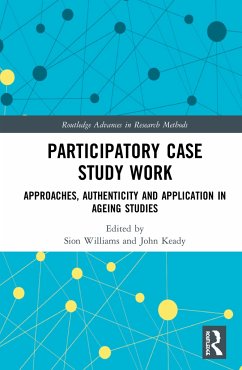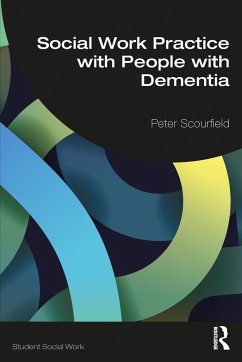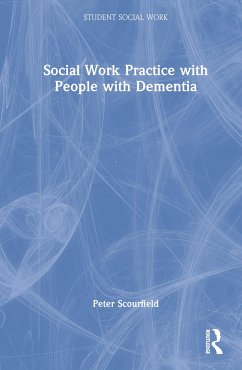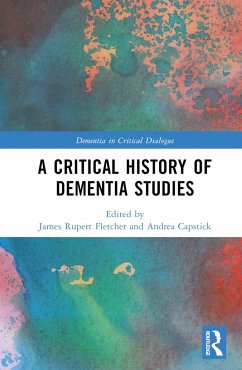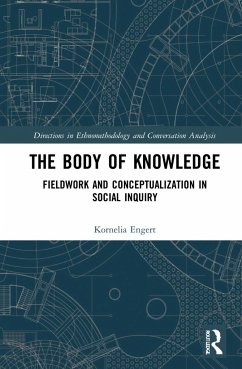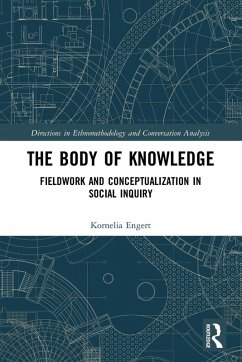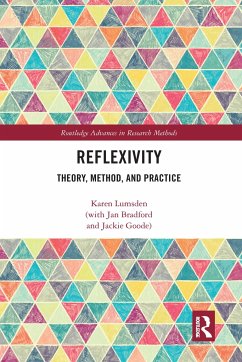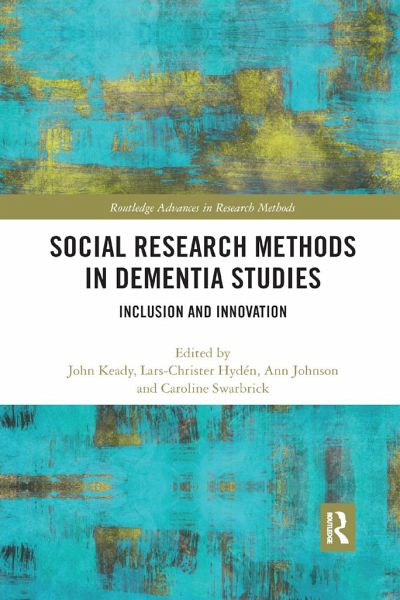
Social Research Methods in Dementia Studies
Inclusion and Innovation
Herausgegeben: Keady, John; Hydén, Lars-Christer; Johnson, Ann; Swarbrick, Caroline
Versandkostenfrei!
Versandfertig in 6-10 Tagen
47,99 €
inkl. MwSt.
Weitere Ausgaben:

PAYBACK Punkte
24 °P sammeln!
Traditionally, the most preferred social research methods in dementia studies have been interviews, focus groups and non-participant observations. Most of these methods have been used for a long time by researchers in other social research fields, but their application to the field of dementia studies is a relatively new phenomenon.A ground-breaking book, Social Research Methods in Dementia Studies shows researchers how to adapt their methods of data collection to address the individual needs of someone who is living with dementia. With an editorial team that includes Ann Johnson, a trained nu...
Traditionally, the most preferred social research methods in dementia studies have been interviews, focus groups and non-participant observations. Most of these methods have been used for a long time by researchers in other social research fields, but their application to the field of dementia studies is a relatively new phenomenon.
A ground-breaking book, Social Research Methods in Dementia Studies shows researchers how to adapt their methods of data collection to address the individual needs of someone who is living with dementia. With an editorial team that includes Ann Johnson, a trained nurse and person living with dementia, this enlightening volume mainly draws its contents from two interdisciplinary social research teams in dementia, namely the Center for Dementia Research [CEDER] at Linköping University in Norrköping, Sweden and the Dementia and Ageing Research Team [DART] at The University of Manchester in Manchester, UK. Case examples are shared in each of the main chapters to help ground the social research method(s) in a real-life context and provide direction as to how learning can be applied to other settings. Chapters also contain key references and recommended reading.
This volume will appeal to undergraduate and postgraduate students, as well as postdoctoral researchers, interested in fields such as: Research Methods, Qualitative Methods and Dementia Studies.
A ground-breaking book, Social Research Methods in Dementia Studies shows researchers how to adapt their methods of data collection to address the individual needs of someone who is living with dementia. With an editorial team that includes Ann Johnson, a trained nurse and person living with dementia, this enlightening volume mainly draws its contents from two interdisciplinary social research teams in dementia, namely the Center for Dementia Research [CEDER] at Linköping University in Norrköping, Sweden and the Dementia and Ageing Research Team [DART] at The University of Manchester in Manchester, UK. Case examples are shared in each of the main chapters to help ground the social research method(s) in a real-life context and provide direction as to how learning can be applied to other settings. Chapters also contain key references and recommended reading.
This volume will appeal to undergraduate and postgraduate students, as well as postdoctoral researchers, interested in fields such as: Research Methods, Qualitative Methods and Dementia Studies.





